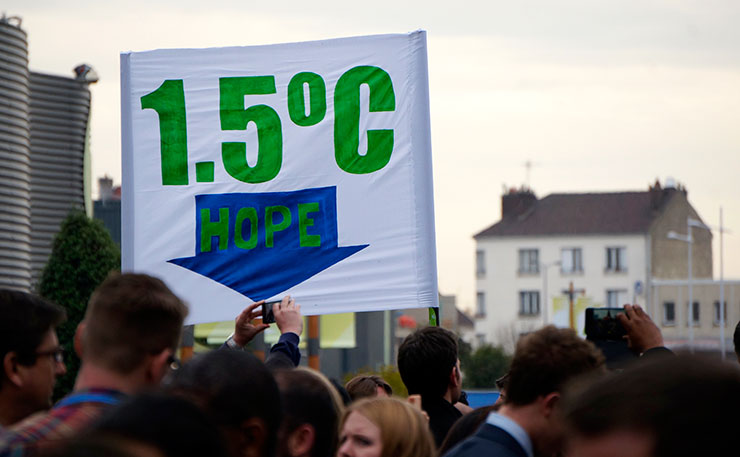In keeping with the now-perennial trend, another Australian climate record has fallen. As the Great Barrier Reef was scalded white, air temperatures during Autumn 2016 were the hottest they’ve been since records began in 1910.
A mercurial March made its way into the history books, posting the hottest average temperature ever and breaking the national record. April and May were the second-warmest they’ve ever been, and both were well above their historical means.
The Climate Council has put out a report analysing fresh data from the Bureau of Meteorology, which it says “add to the overwhelming evidence for human-driven climate change”.
It also notes that the hot air temperatures were accompanied by unusually warm waters, and that this has contributed to the bleaching that’s killed off more than a third of coral on some parts of the Great Barrier Reef.

National air temperatures were 1.86 degrees celsius above the Autumn average this year, which the Bureau of Meteorology said is the greatest margin of anomaly for any season on record.
In its latest report, the Bureau said:
“The season started with a prolonged heatwave that included Australia’s hottest March days on record. Notably warm nights persisted throughout March, resulting in a record national March mean temperature for Australia as a whole. Warmth continued into April, resulting in daytime temperatures that were highest on record across large areas of the continent. Late season heat records were observed in all States and Territories as warm weather persisted throughout the second half of April.
“There was yet more unseasonable warmth in May, with record high maximum and minimum temperatures being recorded for many locations across large areas of northern and eastern Australia. May finished the season with another spell of well-above-average temperatures and late-season warmth across the tropics and eastern states, with some further records being set in the month’s final week.”
The scolding temperatures have been driven by an El Nino weather system, and bolstered by rising mean global temperatures. Late last year it was confirmed climate change has already pushed global average temperatures up one degree, halfway to the two degree ‘red line’ countries agreed not to cross at the Paris climate conference in December.

The tragic impacts of this warming have been on display over recent months, with 93 per cent of the Great Barrier Reef suffering coral bleaching that has killed off more than one third of coral in sections of the natural wonder.
Increasingly, scientists are warning that the Great Barrier Reef as we know it will not survive. Last year the Great Barrier Reef Marine Park Authority warned that the Reef would be unlikely to persist in its current “coral dominated” form if temperatures rise by more than 1.2 degrees.
With temperatures already driven up by one degree, significant warming ‘locked in’ by existing greenhouse gas emissions, and the use of fossil fuels growing, the future looks grim for the Australian icon.
In April, scientists suggested that the recent mass-bleaching event was made 175 times more likely by climate change. The Reef had already been declining before the bleaching, losing more than half of its hard coral cover over the last 30 years.
As New Matilda has been reporting, scientists have criticised the major parties for failing to commit the resources necessary to give the Great Barrier Reef a fighting chance as temperatures continue to climb.

In their report, released yesterday, the Climate Council warned that there will likely be no respite from the record-breaking temperatures that have contributed to the Reef’s demise.
This year is tipped to topple 2015 as the hottest on the global record, which dates back to 1880. As the Climate Council notes, 13 of the 15 hottest years on the international record have occurred since the year 2000.
And the trend is accelerating: The previous 12 months all broke their respective global temperature records. “May is likely to have continued this trend”, the Climate Council said, marking more than a year of broken climate records for the combined ocean and atmosphere temperatures.
“The record-breaking hot years the world has experienced in the last few decades would have been virtually impossible in a world without climate change,” the Climate Council report said.
Donate To New Matilda
New Matilda is a small, independent media outlet. We survive through reader contributions, and never losing a lawsuit. If you got something from this article, giving something back helps us to continue speaking truth to power. Every little bit counts.





